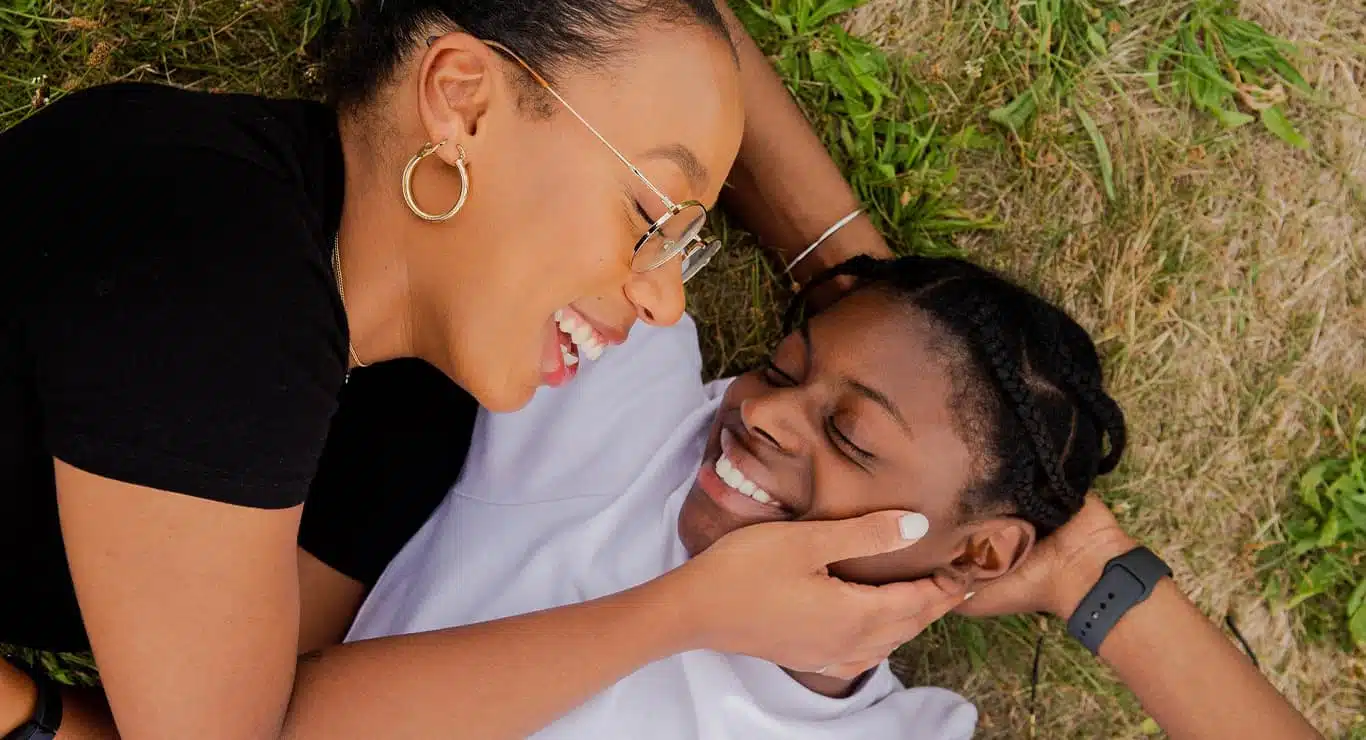We listen to other people all the time, but how often do we really pause and tune in to what they’re saying? There’s a big difference between processing information and truly listening with our minds and hearts. That step is what takes us from simply hearing to then being an active listener. Developing this skill is particularly important for parents of teens.
Parents of teenagers can gain clues every day about what is going on in their children’s lives—but you have to listen to your teen. Teens are not always going to speak openly about their challenges and problems, especially when they may not even realize they are problems yet. When parents take the time to actively listen, rather than thinking about their next response or trying to compose sage wisdom to share, they may be surprised by what teens actually do want to share.
Here are five ways to be an active listener for your teen:
1. Listen with Intent
One of the biggest complaints that teens have about their parents is “You never listen to me!” Even when parents can recite word for word what their teens said, they haven’t always received the message or the deeper meaning. Moreover, parents are often busy and distracted by checking their phones, making dinner, managing other children, and handling work or household tasks.
When parents are talking with teens, they should remove as many distractions as possible. Sometimes the best conversations happen while driving or doing an activity or chore together. But even then, when something is really important, parents can stop and focus on their teens with undivided attention.
Parents always complain that kids are on their devices all the time, but parents are guilty of this, too. When parents silence their phones and set them aside, they demonstrate to their children that they are the most important thing in their world, and they want to hear whatever they have to say.
2. Demonstrate Interest
Body language speaks so much louder than words. If parents show they’re distracted by tapping their feet or shifting their weight around, that visually tells a teen that they are not focused on them and what they are saying. If the subject is difficult for parents and therefore, they avert eye contact, teens can become uncomfortable as well and not want to share after all.
To practice active listening means that even when we’re not saying anything, we demonstrate that we are actually taking in what’s being said. Eye contact is so important, no matter how difficult it may be to maintain. This is the most important visual cue that one can give in communication. Responding appropriately with facial expressions, nods, and, when appropriate, a gentle touch of the hand are all visual cues that we are listening to what the other person is saying. When parents demonstrate their interest visually, they make it safe for their teens to talk to them.
3. Don’t Interrupt
Far too often, we tend to interrupt others to give them advice rather than simply listening to what they are processing. Sometimes parents forget that a big part of adolescence is learning things for oneself. That mean parents sometimes need to stay quiet and allow teens to talk, so they can come to conclusions themselves.
Often, the relationship between a parent and a teen is already strained. Therefore, interrupting when they have something to say that is important to them can keep them from talking openly in the future. When in doubt, don’t speak, simply listen to your teen. When there is a long pause and the teen looks to you to say something, that’s the best time to offer thoughts.
4. Listen Mindfully
Mindfulness involves being in the present moment and not judging. As a parent, this can be very difficult. Watching a teen learn painful lessons—both big and small—is hard. Parents often feel the need to intervene and give guidance, especially when a teen has experienced mental health issues like anxiety and depression, and may seem especially vulnerable. However, open parent-child communication is proven to boost teen mental health and decrease teen substance use.
Listening mindfully means tuning in to the words you are hearing right now, regardless of past issues or future fears. Moreover, it means abstaining from making any judgments about what is being said. The time for parenting comes after the listening.
Yes, there will be conversations that are like broken records, revisiting past behaviors and events. However, allowing teens to speak and learn from their own words is more effective than anything parents could say or do at that moment. The importance of being heard is immense for teens and giving them respect without judgment is far more empowering than any kind of instruction or advice that parents may be tempted to offer at this point.
5. Ask Thoughtful Questions
When the time comes for asking questions, they should be thoughtful, compassionate, and directly related to what the teen is saying. These may be clarifying questions that to elicit more information about a teen’s feelings or fears. In addition, parents can ask thought-provoking questions that give teens the opportunity to think about something in a new way or explore potential next steps.
Asking thoughtful questions, listening mindfully, not interrupting, visually demonstrating interest, and listening with intent are all ways that parents can practice active listening. Being an active listener shows a teen that they are respected, and that their thoughts and feelings are valid and worthwhile. Sometimes, the best parenting is not saying anything at all.
Sources:
Drug and Alcohol Dependence. 2015 Dec; 157: 129–135.
Science Daily. 25 Oct 2018.
Photo by Shingi Rice on Unsplash






